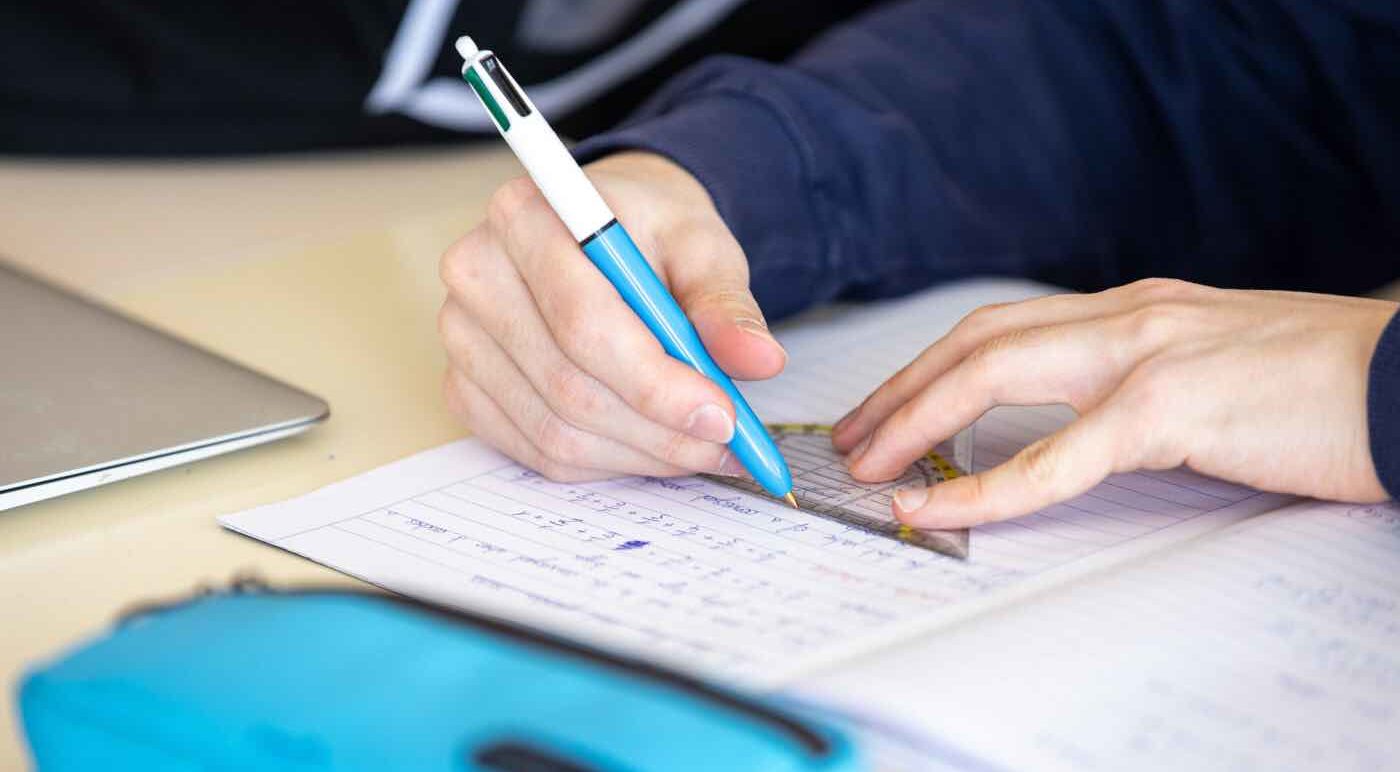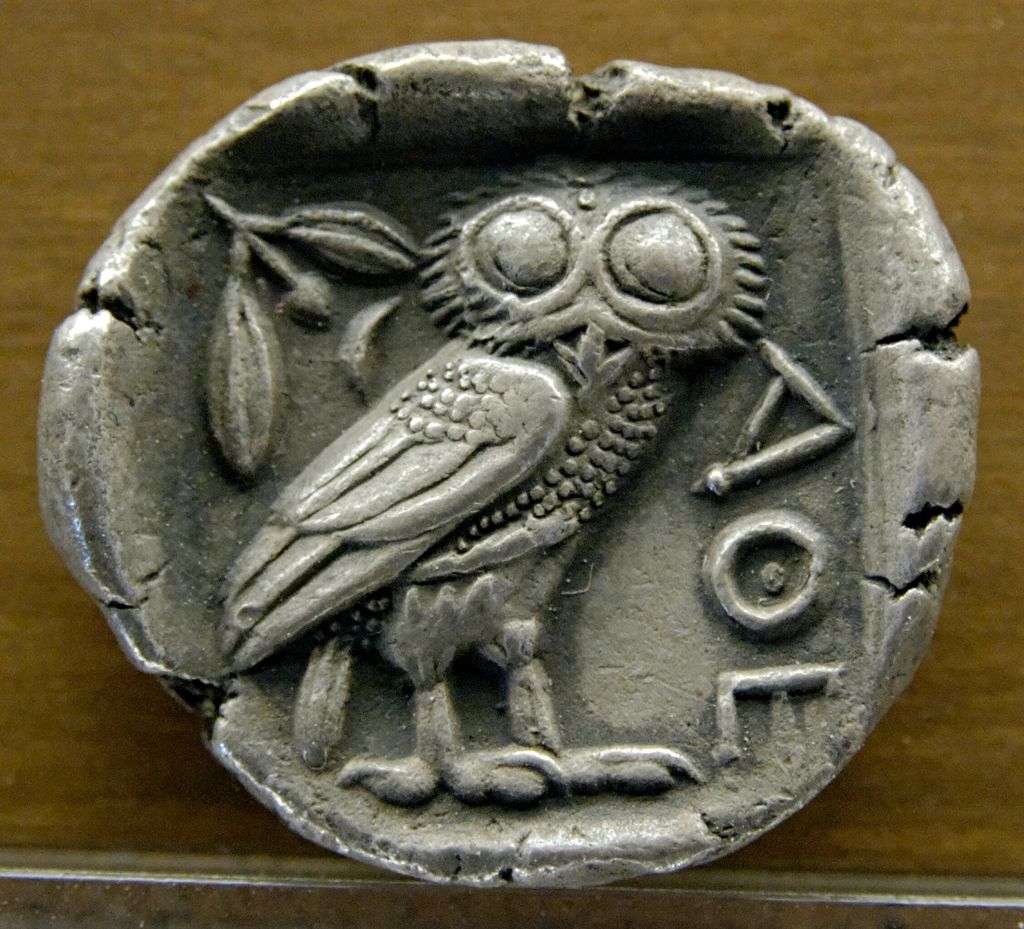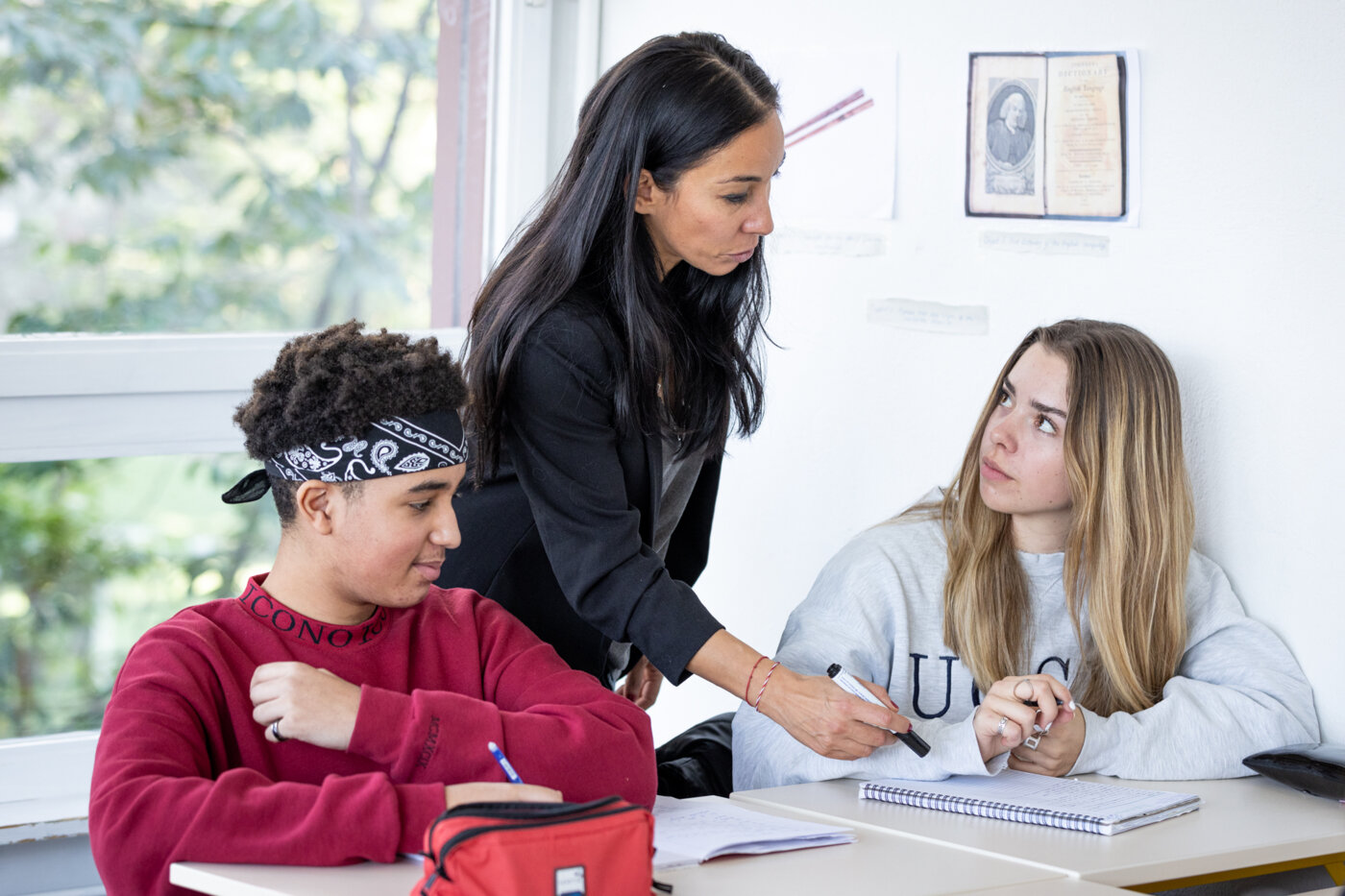The article entitled "Ecrire à la main aide à mémoriser" ("Writing by hand helps to memorise") that appeared in the newspaper Le Temps on Saturday 9 March immediately caught my attention. In recent years, a number of public schools have reported extensively on the widespread adoption of tablets in the classroom, sometimes presenting this as a veritable educational revolution!
Writing by hand helps you remember, or the proper use of tablets

The Ecole Lémania has been very discreet and has never mentioned this in the press. So I wanted to know where we stood on this issue.
Both Ms Theofanidis, Director of Secondary Studies, the Swiss Maturité and the French Baccalaureate, and Ms Crisante, Director of the International Baccalaureate, told me that tablets were being used in class, but to a limited extent, and that handwritten notes were still widely used at the school. As far as the International Baccalaureate is concerned, the switch to digital examinations is not planned before 2029. And this will not mean a total abandonment of handwriting during the school year.
I was very pleased to hear this. An outright rejection of this new tool, a sign of indefatigable conservatism, would have displeased me as much as the blind adoption of a new gadget.
As Aristotle said in ancient times, moderation is the best policy, and I think it’s fair to say that throughout its history, the Lemania School has thoughtfully integrated new teaching tools, methods and resources, without ever throwing the baby out with the bathwater.
The article in Le Temps refers to a study carried out in Norway and published in the journal Frontiers in Psychology, in which 36 students were asked to write alternately with a stylus or by typing on a keyboard with their index finger, while their brain activity was recorded using encephalography (EEG). Extensive neuronal connectivity in the brain, conducive to learning, was only clearly apparent during handwriting.
What’s more, taking notes by hand forces us to process the information we receive and take down only the essentials, which helps us to remember. Marieke Longcamp, a professor specialising in cognitive neuroscience at the University of Aix-Marseille, agrees with Audrey van der Meer, the author of the Norwegian study, in recommending that handwriting be retained at school. As well as helping with memory, handwriting, as a fine motor activity, helps to prevent cognitive decline in the elderly, in the same way as knitting or playing a musical instrument!
In conclusion, we can only encourage everyone to write by hand throughout their lives, in parallel with the inescapable activity of using digital tools.
Other posts

Discover the Story of Mina, the AI of Lemania

Climate Change: Why We Shouldn’t Be Discouraged Despite Trump’s Return to Power

We are not condemned to choose between happiness and ecology

When the vocational training is just a first step

Ovomaltine, Rolex, Nescafé, Swatch or Nagra. What do they all have in common?

Pedagogy: from commonplaces to key concepts
